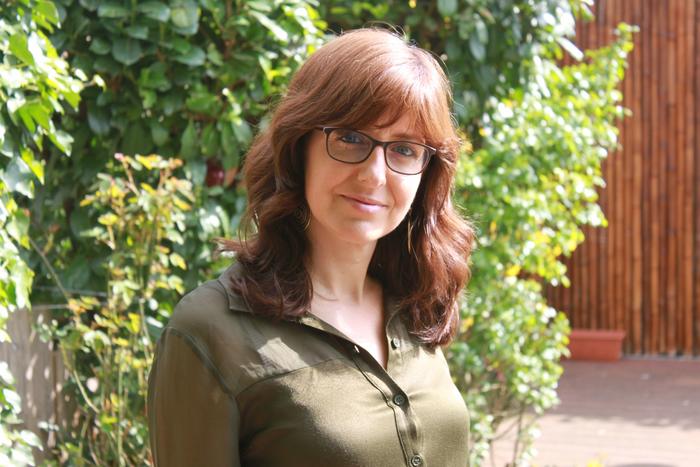Prof. Teresa Marrodán Undagoitia, a significant figure in contemporary astroparticle physics, is at the forefront of probing one of the universe’s greatest mysteries: dark matter. Adhering to the notion that a substantial portion of the universe is composed of unseen matter, her research is breaking boundaries and making pivotal contributions to our understanding of these elusive particles. At the Max Planck Institute for Nuclear Physics in Heidelberg, Germany, she leads innovative experiments that explore the properties of dark matter particles, utilizing state-of-the-art liquid xenon detectors as her primary instruments.
The search for dark matter is akin to seeking a phantom in a vast room—it is a formidable challenge that requires both creativity and precision. Prof. Marrodán Undagoitia’s commitment to this avenue of research materialized during her doctoral studies at the Technical University of Munich, where she delved into light emission in organic liquid scintillators and examined the possibility of proton decay. Her deep engagement with these complex topics led her to a postdoctoral fellowship at the University of Zurich, after which she transitioned into a permanent role at the Max Planck Institute, where her influence has steadily grown since.
Her proficiency is especially evident in her leadership role within the XENON collaboration, where she oversees the development and implementation of light sensors for both the XENON1T and XENONnT experiments. These sensors serve a vital role, acting as the eyes that detect faint light signals produced by potential dark matter interactions within the liquid xenon. The meticulous engineering behind these sensors is complemented by collaboration with industrial partners, reflecting a harmonious intersection between academia and industry that enriches scientific inquiry.
In her current position, Prof. Marrodán Undagoitia’s focus has expanded to include an intricate understanding of energy deposition mechanisms in the liquid xenon medium. Her lab is pioneering investigations into the infrared emissions generated by particles within this material, a breakthrough that holds the promise of significantly enhancing the sensitivity of future dark matter detection experiments. Such advancements are crucial as experiments like DARWIN and XLZD are poised to redefine the field of astroparticle physics by achieving unprecedented levels of detection sensitivity.
Her contributions extend beyond experimentation and technical implementation; they are also intertwined with the broader scientific community as she serves on the editorial board of the XENON collaboration. This elected body is responsible for establishing publication strategies, ensuring that vital findings reach the academic community and the public. Additionally, her roles on various scientific advisory boards, including those for the Canfranc underground laboratory in Spain and the CAPA Institute in Zaragoza, underscore her influence and commitment to advancing both research and collaborative networking across international platforms.
The essence of her work and her responsibilities does not stop there. Prof. Marrodán Undagoitia is heavily engaged in educating the next generation of physicists. Her commitment to mentoring students and supervising doctoral candidates reflects her belief in the importance of fostering new talent to carry the torch of inquiry into dark matter and neutrino properties. As she enriches the curricula in her role as a professor by special appointment at the University of Amsterdam, her expertise is expected to bolster the capabilities of the Nikhef Dark Matter group significantly.
Collaboration, especially within the realm of neutrino experiments such as DUNE, provides another avenue through which her skills will enhance scientific efforts. The associated detection and analysis techniques she champions can pave the way for breakthroughs in our grasp of neutrinos and their interactions, further complicating but enriching the already intricate tapestry of particle physics.
Social impact is also an integral part of her scientific mission, as she actively participates in public outreach initiatives. Her experiences allow her to communicate complex topics relating to dark matter and particle interactions to diverse audiences, helping to demystify the work being done in high-energy physics laboratories. This effort not only takes science into the mainstream but also inspires enthusiasm for scientific exploration among students and the general public alike.
In recent years, her leadership and advocacy roles have further amplified her influence. Since her appointment as ombudsperson of the Max Planck Institute, she has facilitated discussions around the work-family balance, addressing critical issues pertinent to scientific professionals. Such roles showcase her commitment to creating a supportive and inclusive environment for researchers at all career stages.
As the scientific community turns its focus toward the future of dark matter research, the contributions of leading figures like Prof. Marrodán Undagoitia will be pivotal. With state-of-the-art technologies and a robust understanding of the intricacies of particle interactions, her contributions will help unravel the mysterious fabric of our universe. Each experiment designed, each light sensor deployed, and every data analysis performed carries with it the potential to extend the boundaries of human knowledge into the uncharted territories of dark matter and beyond.
Prof. Marrodán Undagoitia’s work epitomizes the blend of research excellence and community engagement that is essential in modern science. She stands as a beacon for aspiring scientists, illustrating that perseverance and a commitment to inquiry can lead to groundbreaking discoveries. As she continues her journey alongside other eminent scientists in the field, we can look forward to advancements that will not only push the boundaries of physics but also ignite the imaginations of future generations.
This symbiotic relationship between research and teaching, community involvement, and public outreach forms a compelling narrative that transcends the confines of academia. Prof. Marrodán Undagoitia’s career thus far is a testament to what is possible when one blends scientific passion with social responsibility, ultimately demystifying the wonders of our universe for all to appreciate and understand.
Subject of Research: Astroparticle Physics, Dark Matter Detection
Article Title: Unveiling the Mysteries of the Universe: Prof. Teresa Marrodán Undagoitia’s Quest for Dark Matter
News Publication Date: October 2023
Web References: Not available
References: Not available
Image Credits: T. Marrodán Undagoitia/MPIK
Keywords
Astroparticle Physics, Dark Matter, Neutrinos, Liquid Xenon, XENON Collaboration, Max Planck Institute, High-Energy Physics, Scientific Outreach, Research Leadership.




